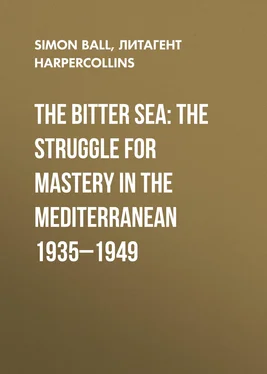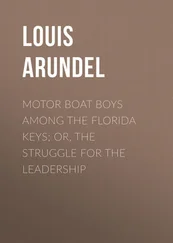The war developed much as the admirals had predicted. Indeed, the sea produced a conflict of curious symmetry. There were four major naval battles, two in the east, two in the west. There was one eastern and one western battle in July 1940, another eastern and another western battle in November 1940. None of these naval battles resembled the titanic and decisive fleet clashes that naval fantasists such as Churchill longed for. Two–Mers el-Kébir on 3 July 1940 and Taranto on 11 November 1940–comprised not engagements at sea at all but attacks by one fleet at sea upon another riding at anchor. Both fleets at anchor suffered significant damage, but neither was destroyed. In both cases battleships were able to leave the port under attack and sail to safer ports. In the two battles at sea–Punta Stilo on 9 July 1940 and Cape Spartivento on 27 November 1940–the two fleets followed engagement with evasion, privileging the survival of their ships. As a result, in neither battle were there heavy casualties. The fleets performed a delicate quadrille, living up to their own expectation that–barring disaster–the Mediterranean could be neither completely closed nor fully opened. 12
If the hopes and fears of the cautious admirals, if not of their querulous masters, proved realistic, they did nevertheless suffer some unpleasant surprises. The Mediterranean lacked the wide expanses of the oceans, but it suddenly seemed a very empty sea. The opposing forces had great difficulty in finding each other. The Mediterranean in 1940 offered little proof that there had been a revolution in naval affairs. Cunningham saw the evidence of this within days. His newly installed naval interception service beautifully triangulated the Italian cruiser Garibaldi, lying off Derna, from stations at Alexandria, Malta and Gibraltar. No high-level codebreaking of the Ultra kind was involved, the location of the cruiser was derived from traffic analysis and call-sign recognition. It was a brilliant early achievement for communications intelligence. Cunningham had squadrons cruising off Tobruk, Benghazi and Crete. Garibaldi was neatly in the middle of a trap. Sadly, although the communications intelligence was a triumph, British communications were less so. Alexandria failed to raise Cunningham’s flagship in time. By the time ABC knew what was happening, the Garibaldi had escaped. 13
If the British had their difficulties, so too did the Italians. Italy had a good intelligence system. It had been used in the years of peace, however, as the means by which Mussolini had pulled diplomatic rabbits out of the hat. Mussolini and Ciano were past masters at this kind of trick. With the onset of war and the removal of embassies, many of their best sources dried up. In any case the bullying or cajoling tactics of the Duce– his so-called animal instinct’–were hardly a good foundation on which to base the careful consideration of military intelligence. 14 Nevertheless, Italian naval intelligence was certainly not without resources. Its crypt-analysts could read a fair proportion of Cunningham’s signals. The Italian fleet at Punta Stilo was particularly well informed on his activities. 15 The listening war in the Mediterranean was roughly even in 1940, the successes and failures of each side mirroring each other. Both had a good idea of what the other was trying to achieve, both could read some signals traffic, neither had a complete enough picture to achieve a decisive advantage.
Both sides could hear each other, albeit fuzzily. They could see each other only intermittently. It was easy enough for the Italians to see Cunningham’s fleet leaving Alexandria. Thereafter he and Somerville were too often swallowed up by the sea. This was not how it was supposed to be. The aeroplane was supposed to solve such problems. Ciano, for one, thought everything would be simple, and indeed enjoyable. ‘I have tasted again in full the intoxication of being a flyer,’ he boasted to his wife. On the third day of the war he bombed Toulon–‘magnificent, soothing, indescribable we carried out a real slaughter’–and then on his way home, crossing the stretch of sea between Corsica and Italy, he spotted the British. ‘I saw a ship,’ he confided in Edda immediately upon landing, ‘I point my Zeiss: British flag. Imagine my orgasm.’ Ciano’s tumescence was perhaps premature. There is no proof that he actually saw anything. In any case he had no means of attacking a ship. Notably, other Italian pilots seemed to enjoy much less success than the multi-talented foreign minister. 16 The Italians had about one hundred planes out looking for British ships but most of them were ‘incredibly antiquated’ ‘Gulls’, a type of wooden flying boat, best known for long cruises. Somerville remarked on how often such aircraft were victims of ‘summary destruction’ as soon as they approached concentrations of British warships. 17 By the autumn of 1940, the Regia Marina and the Regia Aeronautica were involved in a vicious campaign of mutual discredit in the highest Fascist councils. The air force ‘made fun of the navy for failing ever to engage the British; the navy denounced the air force as liars, whose every claim to have found, much less damaged the British, was falsified. 18
If Cavagnari did not rate the RAI’s attempts at maritime reconnaissance then neither did Cunningham admire the RAF’s. He devoted much of his prodigious energy to complaining about, or attempting to take over, RAF activity in the Mediterranean. At the very least, Cunningham argued, more use should be made of Malta. A silly idea, retorted his air-force opposite number, Arthur Longmore; it was only a matter of time before the Italians got their act together and bombed Malta into impotence. In autumn 1940 Cunningham finally won the argument: first flying boats and then, at the end of October 1940, land-based reconnaissance aircraft were sent to Malta. These aircraft of uncertain parentage–made by America for France, taken by Britain as stop-gap–enjoyed an immediate and brilliant success, spotting the Italian fleet at anchor in Taranto. But there was still a big difference between spotting a fleet at anchor–the Italians could spot the British in Alexandria–and finding one at sea. The flyers lost sight of the Italian battleships once they hauled anchor. The Royal Navy and the Regia Marina complained about the same thing–the failure of air reconnaissance–at exactly the same time. 19
Whatever the details of Mediterranean operations, by far the most unpleasant surprise–at least for the British–was who was fighting whom. There were undoubtedly tensions between the British and the French in the Mediterranean, but few on either side had believed before June 1940 that they would end up killing each other. As it happened the bitterest naval conflict in the Mediterranean turned out to be Anglo-French, rather than Anglo-Italian. Because that conflict did not fit into the grand narrative of ‘total war’ it tended to be underplayed–Britain and France never declared war on each other–its main event, the sinking of a French fleet at Mers el-Kébir, becoming an incident rather than a battle. Yet at the time the shadow war against France was of equal importance to the ‘real’ war against Italy. Mussolini had often talked about ‘breaking out’ of the Mediterranean but there were never any realistic plans for Italy to fight anything other than a Mediterranean war. France too had had modest plans for the Mediterranean–the convoys between North Africa and the metropole–but it had the genuine potential to move in and out of the Mediterranean. France itself had both Mediterranean and Atlantic coasts, but the Atlantic coast was occupied by the Germans in June 1940. French North Africa also had Mediterranean and Atlantic coasts, all of which remained in French hands. The French were willing and able to transfer warships between the two coasts.
Читать дальше












